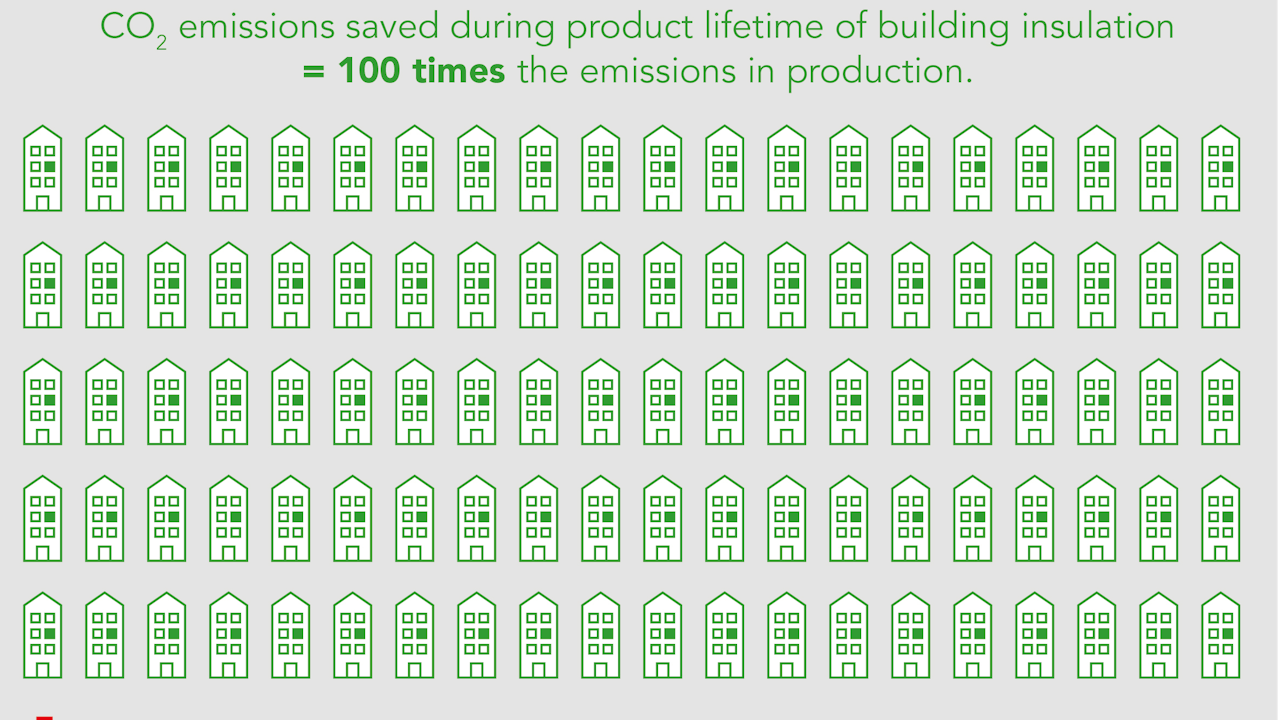In 2019 ROCKWOOL sold building insulation products that in their lifetime will save globally the equivalent of the annual carbon emissions of Denmark, Norway and Sweden together. Our sold technical insulation products save even more in their lifetime - equivalent to Germany’s annual carbon emissions.
Getting the proportions right
Through our insulation products we have truly significant positive impact on the climate change:
- Our building insulation sold in 2019 will save 888 terawatt-hours of heating energy during its lifetime and as a result save 200 million tonnes of CO2 This is equivalent to 100 times the carbon emitted in its production.
- Our building insulation saves nearly 80 times the PM emissions related to the production of ROCKWOOL insulation during the 50 years average lifetime of a building.
- Our technical insulation sold in 2019 will save 4,500 terawatt-hours heating energy during its lifetime and as a result save one billion tonnes of CO2 This is equivalent to approximately 5,500 times the carbon emitted in its production.
We are committed going forward to minimizing our own carbon emissions in production and maximizing the saved energy and carbon through the use of our products.
How is the saving calculated?
To assess the energy, carbon and air emission savings from the usage of sold ROCKWOOL insulation products, there is a need for a robust and transparent calculation methodology. Therefore, ROCKWOOL asked Navigant to develop a methodology to calculate the energy and CO2 emission savings of its building and technical insulation as well as the SO2, NOx, and particulate matter (PM) savings for building insulation. Navigant developed the methodologies independently of ROCKWOOL and endorses that the annual savings calculated by ROCKWOOL correctly follow these methodologies.
The CO2 and other air emissions emitted during production of ROCKWOOL products have been calculated by ROCKWOOL.
Guidehouse developed methodologies to calculate the CO2, energy and emission savings in the lifetime of sold building insulation and technical insulation products. Guidehouse endorsed that these product benefits calculated by ROCKWOOL annual correctly follow these methodologies. Download the methodologies here:



